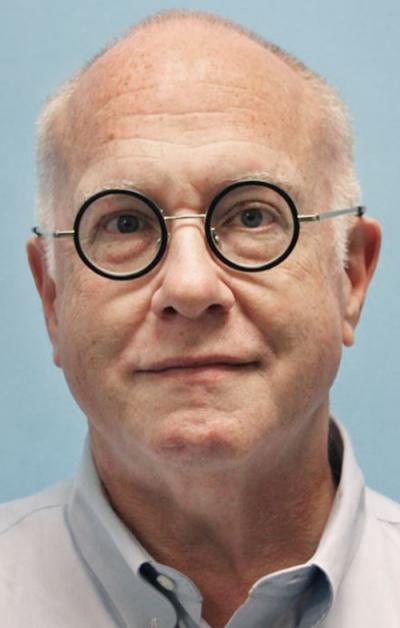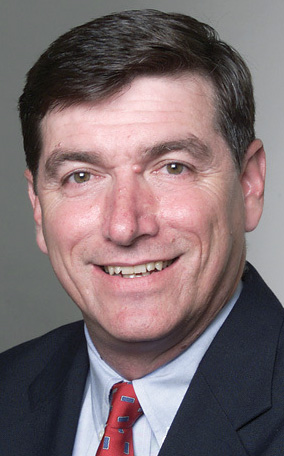

Domain Names |
Sponsored by |

|
 Private equity firm Ethos Capital's attempt to take control of .org, the Internet domain that's home to most of the world's non-profit and public-benefit organizations, has triggered an interesting crisis in Internet governance. The Internet Corporation for Assigned Names and Numbers, or ICANN, is the body responsible for regulating the global domain name industry. For the first time since oversight responsibility over ICANN was passed from the United States National Telecommunications and Information Administration...
Private equity firm Ethos Capital's attempt to take control of .org, the Internet domain that's home to most of the world's non-profit and public-benefit organizations, has triggered an interesting crisis in Internet governance. The Internet Corporation for Assigned Names and Numbers, or ICANN, is the body responsible for regulating the global domain name industry. For the first time since oversight responsibility over ICANN was passed from the United States National Telecommunications and Information Administration...
 When .org prices rise, who suffers – nonprofits or speculators? Will Ethos Capital raise prices more aggressively than ISOC would? Vint Cerf attributed concerns about higher prices to speculators: "Of course, companies that hold domain names in the tens of thousands for speculative purposes might find such increases more troubling, but I don't have much sympathy for that business model in the context of the organizations the .org brand is intended to serve."
When .org prices rise, who suffers – nonprofits or speculators? Will Ethos Capital raise prices more aggressively than ISOC would? Vint Cerf attributed concerns about higher prices to speculators: "Of course, companies that hold domain names in the tens of thousands for speculative purposes might find such increases more troubling, but I don't have much sympathy for that business model in the context of the organizations the .org brand is intended to serve."
 Vint Cerf has posted comments in support of the pending sale of PIR and the .org registry to Ethos Capital. Vint's Comments . Vint is a respected member of the Internet community, and his comments need close attention and careful assessment. Some of his comments have been discussed here earlier. Other comments, posted here and elsewhere, have either supported the sale or raised questions.
Vint Cerf has posted comments in support of the pending sale of PIR and the .org registry to Ethos Capital. Vint's Comments . Vint is a respected member of the Internet community, and his comments need close attention and careful assessment. Some of his comments have been discussed here earlier. Other comments, posted here and elsewhere, have either supported the sale or raised questions.
 ICANN's Board will meet soon, perhaps even tomorrow, to discuss the dot-org domain sale. It is a pivotal inflection point in the history of Internet governance. When Internet Society (ISOC) was awarded the dot-org domain over ten other bids in 2002, evaluators voiced concerns about their ability to steward it. The report explains: Some on the Committee expressed concern, however, that ISOC's associations extend only to the networking/connectivity community and not to a broader base...
ICANN's Board will meet soon, perhaps even tomorrow, to discuss the dot-org domain sale. It is a pivotal inflection point in the history of Internet governance. When Internet Society (ISOC) was awarded the dot-org domain over ten other bids in 2002, evaluators voiced concerns about their ability to steward it. The report explains: Some on the Committee expressed concern, however, that ISOC's associations extend only to the networking/connectivity community and not to a broader base...
 Many of my friends in the civil-liberties and Internet-law communities have been criticizing the Internet Society's agreement to sell the Public Interest Registry, which administers the .ORG top-level domain. I'm a free-speech guy, so I support their right to raise all these criticisms. But they often ask me directly – knowing that my track record as an Internet civil-libertarian is longer than most – why as a member of the Internet Society (a.k.a. ISOC) board I decided to join the board's unanimous approval of the deal.
Many of my friends in the civil-liberties and Internet-law communities have been criticizing the Internet Society's agreement to sell the Public Interest Registry, which administers the .ORG top-level domain. I'm a free-speech guy, so I support their right to raise all these criticisms. But they often ask me directly – knowing that my track record as an Internet civil-libertarian is longer than most – why as a member of the Internet Society (a.k.a. ISOC) board I decided to join the board's unanimous approval of the deal.
 As 2019 wrapped up, we took some time to reflect on some of the most impactful digital developments of the past decade and how they helped change our digital lives, including: the rise of mobile and tablet usage; the importance of mobile apps; the explosion of social media and online gaming; cloud computing; domain names, brand protection and the impact of GDP. Now that we've passed the New Year, it's time to look forward.
As 2019 wrapped up, we took some time to reflect on some of the most impactful digital developments of the past decade and how they helped change our digital lives, including: the rise of mobile and tablet usage; the importance of mobile apps; the explosion of social media and online gaming; cloud computing; domain names, brand protection and the impact of GDP. Now that we've passed the New Year, it's time to look forward.
 We respect the right of all parties who wish to express a point of view on the Internet Society's sale of Public Interest Registry ("PIR") to Ethos Capital. However, it's important those views are based on facts -- which has not always been the case. Some have expressed concern that for-profit ownership of .ORG will automatically mean .ORG prices will rise dramatically, or that .ORG's principles will change.
We respect the right of all parties who wish to express a point of view on the Internet Society's sale of Public Interest Registry ("PIR") to Ethos Capital. However, it's important those views are based on facts -- which has not always been the case. Some have expressed concern that for-profit ownership of .ORG will automatically mean .ORG prices will rise dramatically, or that .ORG's principles will change.
 There is a difference, of course, between asserting a claim that cannot possibly succeed in an administrative proceeding under the Uniform Domain Name Dispute Resolution Policy (UDRP) and being unprepared to prove a claim that may have merit with the right evidence. Still, there is also an overlapping similarity in that complainants are either shockingly unfamiliar with UDRP procedures and jurisprudence...
There is a difference, of course, between asserting a claim that cannot possibly succeed in an administrative proceeding under the Uniform Domain Name Dispute Resolution Policy (UDRP) and being unprepared to prove a claim that may have merit with the right evidence. Still, there is also an overlapping similarity in that complainants are either shockingly unfamiliar with UDRP procedures and jurisprudence...
 I watch the controversy over the proposed sale of the .ORG domain with a mixture of bemusement and concern. Some in the ICANN community – mostly those who resent that the Internet ever became commercialized – oppose the sale of the Public Interest Registry to the for-profit company Ethos for $1.1 billion. The basis of their concern is that the domain for non-profits should be in the hands of a non-profit and that the new owners might increase the current $9.93 fee PIR charges for a domain.
I watch the controversy over the proposed sale of the .ORG domain with a mixture of bemusement and concern. Some in the ICANN community – mostly those who resent that the Internet ever became commercialized – oppose the sale of the Public Interest Registry to the for-profit company Ethos for $1.1 billion. The basis of their concern is that the domain for non-profits should be in the hands of a non-profit and that the new owners might increase the current $9.93 fee PIR charges for a domain.
 The .ORG sale has placed Maureen Hilyard – ICANN's At-large Chair – squarely between the largest outpouring of individual user sentiment that the Internet community has ever seen, and the people who can do something about it. For At-large, the stakes are high. ICANN has spent years building up a user organization to balance corporate and government interests. At-large could be a key bulwark against the capture of Internet resources by those with capital and political power.
The .ORG sale has placed Maureen Hilyard – ICANN's At-large Chair – squarely between the largest outpouring of individual user sentiment that the Internet community has ever seen, and the people who can do something about it. For At-large, the stakes are high. ICANN has spent years building up a user organization to balance corporate and government interests. At-large could be a key bulwark against the capture of Internet resources by those with capital and political power.